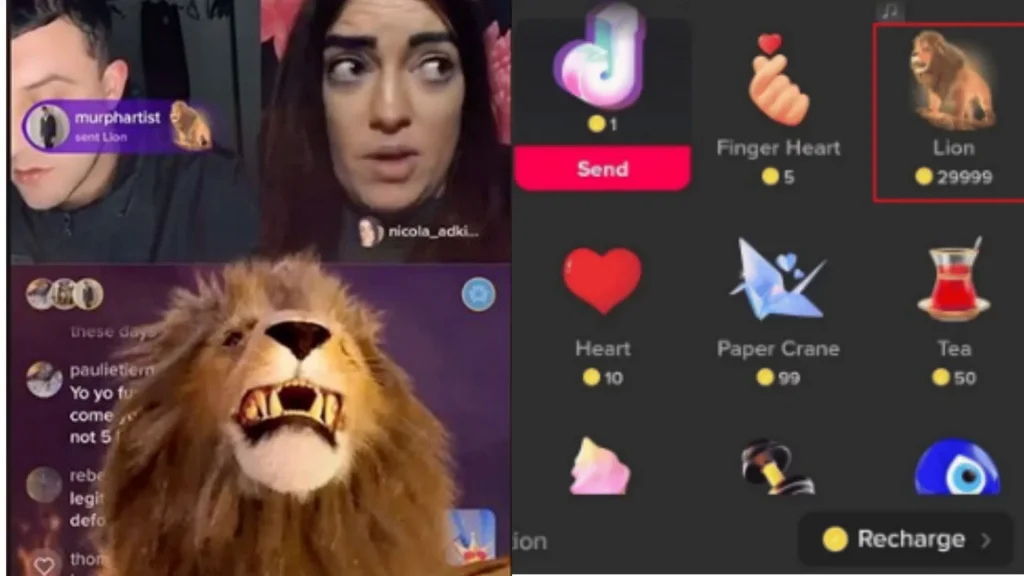TikTok Profits From Syrian Refugees Limited Source of Income

By Yaara Aleissa / Arab America Contributing Writer
A Temporary Solution to a Living Crisis
The continuing civil war in Syria and the unrest have had a tremendous toll on its people. In Syria, 6.8 million Syrians are displaced in their own country. Some have escaped to neighboring countries, Türkiye, Lebanon, Jordan, and Iraq. However, leaving to those countries doesn’t guarantee a place of residence. Many find themselves stuck in refugee camps, with no place to call home. Alongside this, they are impoverished from basic necessities. Due to the lack of a stable income, considering camps don’t provide a diverse range of opportunities.
Recently, some Syrian Refugees have invested in a new source of income: TikTok. The social media company has a “live stream” feature which is well-known among many other popular social media apps. However, an extra incentive TikTok provides is the ability for viewers to purchase gifts sent directly to the live streamer. These gifts come in the form of stickers which each range in price. Viewers purchase them with “TikTok Live Coins,” which convert to currency amounts. For reference, one of the most expensive stickers is a live lion which is 29,999 TikTok Live Coins amounting to 500 US Dollars.
In the Syrian camps, many of the refugees have taken the small amounts of money they used to make through livestock and purchased phones to participate in the TikTok live-action. In order to go live, the user must have 1,000 followers. Once that has been accomplished, the live stream videos begin.
Unfair Split of Profits
“Send me gifts.” “Help me, please.” “Follow, like.” These are just some of the many repeated chants that refugees have posted. Asking viewers to send them “gifts” in the form of TikTok stickers. These stickers the refugees can convert into the local currency, and it serves as a source of income. For those sending stickers, they considered it to be a donation, not hesitating to send large amounts of money. However, many of these donors are unaware of where their money is going. These profits are unfairly split between the Syrian refugees and the multi-billion dollar media company.
BBC Investigation
BBC took notice of this popular trend and followed 300 accounts as they went live from the refugee camps. They also noticed that a large sum of the donors were from the UK. Hannah Gelbart, a global disinformation reporter at the BBC, followed these accounts and noticed some common trends. The families and children in the videos repeated some of the same things. In other cases, someone was usually off-camera directing and telling the children what to say.
Gelbart and other BBC staff members followed these accounts for five months in order to determine who was behind this trend. One of the journalists, Mamdouh Akbiek, visited one of the camps in Idlib, Syria one of the many places where these live streams were taking place. While there, they met with one of the refugees, Hamid, known as the “TikTok Middleman.” He was one of the few that owned a phone and would film TikToks for the families and set up their accounts. He shared some details of how they create their content and receive profits. The most outstanding detail shared was that these refugees were not receiving their full profits, not even half.
The journalists discovered that the target of British viewers was intentional. It was due to the fact that refugees were using British sim cards to attract an audience in the UK. Hamid shared that “they are the most generous donors.” The journalist, Akbiek, gave this a test while he was there. He turned on a live stream at the camp where a correspondent at the BBC sent him a sticker that amounted to 106 dollars (90 pounds). When Akbiek checked his account balance, he had only received 33 dollars.
Tiktok’s Role in the Issue
Many refugees taking on TikTok as a source of income is a last resort. One of the mothers shared her story as a widow and how without her husband and the need to care for her children coming around work was near impossible. Yet, she needed money to fund a lifesaving surgery for her daughter.
Through Tiktok, she receives funds nearly the same as what the donors think she is receiving. A 500-dollar live lion sticker becomes deducted to 155 dollars. That means over 70 percent of these profits are being taken by TikTok. It doesn’t stop there. Families that don’t have phones will lose profits to the middleman like Hamid, who films the videos. Then a 10 percent deduction after cashing out the money at a local money transfer shop.
With the amount journalist Akbiek made. After all those deductions, his 106 dollars turned into 19 dollars, which is significantly higher than what most of the refugees in the camp made.
When the BBC reached out to TikTok, the media company played a game of denial. Stretching itself into the loopholes that don’t regulate how media companies are held accountable for such actions. There is nothing that restricts TikTok from profiting off the suffering of these refugees.
TikTok has a latching grip on these refugees. With no job security, TikTok seems like a reasonable outlet for them because some money (even with significant deductions) is better than none at all. Yet, the giant money company in comparison, could stand to give a more significant percentage to these users rather than taking a large sum from the little they are holding to.
Check out the Arab America Blog here!








